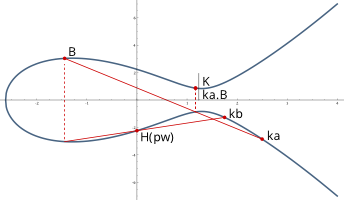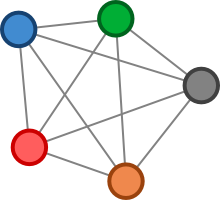Below is a collection of sample work, both code and writing, from academic, professional, and hobby projects. (Unfortunately, NDA agreements prevent me from sharing my recent professional work.)
SWU Implementation (Elliptic Curve Cryptography)
The SWU/ECC project at the University of Luxembourg was a deep and interesting plunge into elliptic curves, discrete mathematics, and extremely abstract thinking. The code I wrote uses the Sage Python math library commonly used for the heavy lifting in cryptographic applications.
Genetic Algorithm Platform
While working on the Genetic Algorithm problem solving project, I rewrote and extended the open-source ssGA genetic algorithm platform (my rewrite no longer contains any lines of code from the original). I extended the platform to allow flexible data types based on Java primitives, without the overhead of object instantiation, and also decoupled all application components to allow further extensions. For the university project, I used this extended platform to develop new solution criteria for the Traveling Salesman Problem, and tested and graphed the solution quality for many different parameterized runs.
LaTeX-Python Document Generator
I have been using LaTeX to generate leases for rental properties because high quality typesetting is an important factor in generating sharp, professional contracts. Python is arguably the most flexible scripting language today, and the Jinja2 template rendering library is the preferred Python templating system. Combining these tools together has resulted in an intuitive, flexible, object-driven document generation system.
Contract types can be created by extending the base 'Contract' class, and instances of a contract can be created and generated by instantiating either Contract or a subclass. Text content and LaTeX macros can be defined by creating .tex and .cls files with names matching the Contract class being used.
Bonk! (Android Game)
Bonk! was an Android game I developed during a Mobile Computing course at the University of Luxembourg. It is a network-based game in which opponents share a world and must shoot projectiles at each other.
Cumulative Measures API
Cumulative Measures are mathematical structures created by Dr. Emil Weydert for reasoning about proportional belief representation and revision (with applications in propositional logic, set theory, probabilistic/statistical reasoning, etc.). This project was comprised of the design, development, and documentation of a Cumulative Measure computation API. For more information on the research topic, read the API Documentation, which is also included in the download below.








